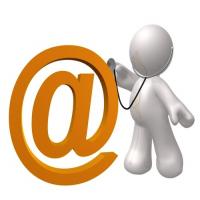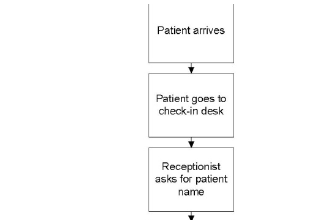 There are many articles on why physicians won’t use email to communicate with patients, such as the lack of remuneration, liability fears, HIPAA concerns and time constraints[1,2,3]. The fact is, physicians don’t read their email or respond to anyone. Seriously.
There are many articles on why physicians won’t use email to communicate with patients, such as the lack of remuneration, liability fears, HIPAA concerns and time constraints[1,2,3]. The fact is, physicians don’t read their email or respond to anyone. Seriously.
 There are many articles on why physicians won’t use email to communicate with patients, such as the lack of remuneration, liability fears, HIPAA concerns and time constraints[1,2,3]. The fact is, physicians don’t read their email or respond to anyone. Seriously.
There are many articles on why physicians won’t use email to communicate with patients, such as the lack of remuneration, liability fears, HIPAA concerns and time constraints[1,2,3]. The fact is, physicians don’t read their email or respond to anyone. Seriously.
Here’s a typical scenario: as physician champion for the EHR in our local system I hold once monthly sessions to trade tips and tricks and answer questions. Doctors rarely show up. Recently one of the physicians emailed me a recommendation that he thought would be of benefit to the providers (I was excited to get an email from him). “Why don’t you hold a monthly tip and trick session and everyone could share?”
Wow. What a great idea. How come I never thought of that? After seething for a good five minutes I sent back an email and said “I’ve been offering this for almost a year now. Obviously I’m not communicating it well enough to the doctors since the email announcement several days before each session isn’t working. Do you have any suggestions on how to improve my communication?” The returned response was, “I guess I don’t read my emails very often.” You think?
The same week my manager got an email from our PR department requesting her to tell me something. When I inquired as to why they didn’t send the email directly to me their response was “Because doctors never read their emails.” Fair enough. But I do.
Yes, writing this rant in a blog is singing to the choir. If you read blogs I’ll bet you keep your email correspondence up-to-date, but seriously doctors: YOU HAVE TO READ YOUR EMAILS in this day and age. It is part of your job. To those of you who are tasked to communicate with physicians, even if they don’t read their emails, it is your job to send them. Don’t remove responsibility from the doctors’ shoulders by never sending the information to begin with. You can copy the manager but you still have to email the doctor.
Our inboxes are crammed full of unimportant things so get the friendly IT guy to create filters for you. Fewer irrelevant things will be delivered to your inbox. Don’t feel the need to respond to every email. Most people don’t need to be thanked or even acknowledged, and they don’t want more extraneous emails in their inbox either. Establish a “throw away” email address on Google or elsewhere to give out when you buy something. Unsubscribe to sites that send you stuff. For more in-depth writing on the subject I recommend the Asian Efficiency website, especially this guide on emails.
OK, back to my inbox. There is probably some mail I need to respond to.
1. Weill Cornell Medical College. The Doctor Will Email You Now
2. http://healthecommunications.wordpress.com/2011/07/19/lack-of-time-and-reimbursement-is-that-why-physicians-dont-do-a-better-job-communicating-with-patients/
3. Wall Street Journal January 23, 2012 Should Physicians Use email to Communicate with their Patients? http://online.wsj.com/article/SB10001424052970204124204577152860059245028.html
(doctors and email / shutterstock)









